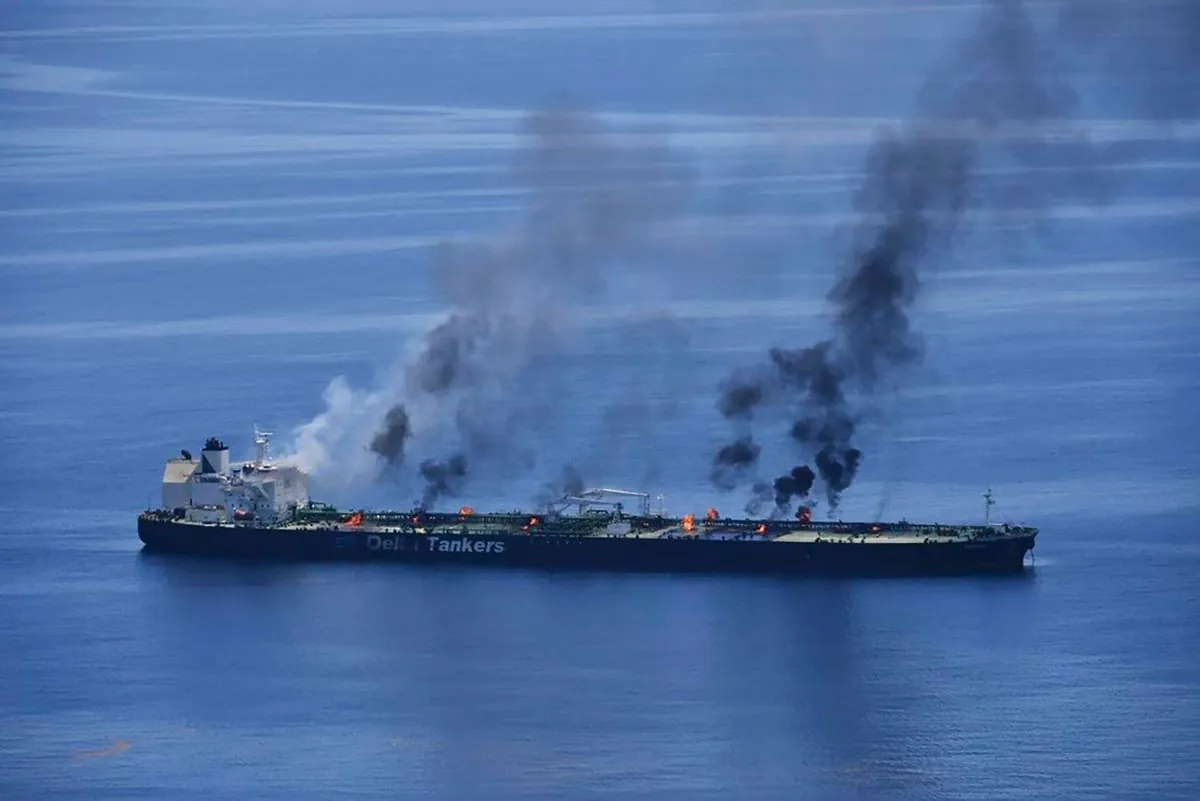In a developing situation in the Red Sea, a Greek oil tanker named Sounion is at the center of growing environmental concerns. The vessel, carrying approximately one million barrels of crude oil, was damaged in an attack by Houthi forces on August 21, 2024, and has been adrift and ablaze since August 23.
Jamel Amer, the Houthi Foreign Minister, announced that tug boats are expected to initiate the towing operation on September 1, 2024. This move comes after the Houthis agreed to allow salvage crews access to the ship, which has reportedly been rigged with explosives.
The potential environmental impact of this situation cannot be overstated. The Red Sea, known for its unique ecosystem, is home to over 1,200 fish species, with about 10% found nowhere else globally. An oil spill in this region could have catastrophic consequences for marine life and the delicate balance of this saltwater inlet of the Indian Ocean.
The Sounion incident is part of a broader campaign by Houthi militants against commercial shipping in the region. This campaign, aimed at supporting Palestinians in the ongoing conflict between Israel and Hamas in Gaza, has raised significant concerns in the international maritime community.
"Tug boats are expected to arrive tomorrow, Sunday, to begin towing the Sounion ship."
The salvage operation faces numerous challenges. Experts suggest that a thorough inspection of the 274-meter vessel is necessary to determine whether it can be safely towed to a port or if a ship-to-ship transfer of its cargo is required. This decision is crucial, as the potential oil spill could be one of the largest from a ship in recorded history, rivaling the Gulf War oil spill of 1991 which released up to 8 million barrels.
Greece, known for having one of the world's largest merchant fleets, operates the Sounion through Athens-based Delta Tankers. The incident highlights the risks faced by commercial vessels in conflict zones and the importance of international maritime law, which requires ships to assist vessels in distress.
The situation in the Red Sea is further complicated by its geopolitical significance. The nearby Suez Canal, connecting the Red Sea to the Mediterranean, handles approximately 12% of global trade. Any disruption in this area could have far-reaching economic consequences.
As the international community watches closely, the outcome of this towing operation could have significant implications for maritime security, environmental protection, and regional stability in an area already fraught with tension due to the ongoing civil war in Yemen since 2014.
